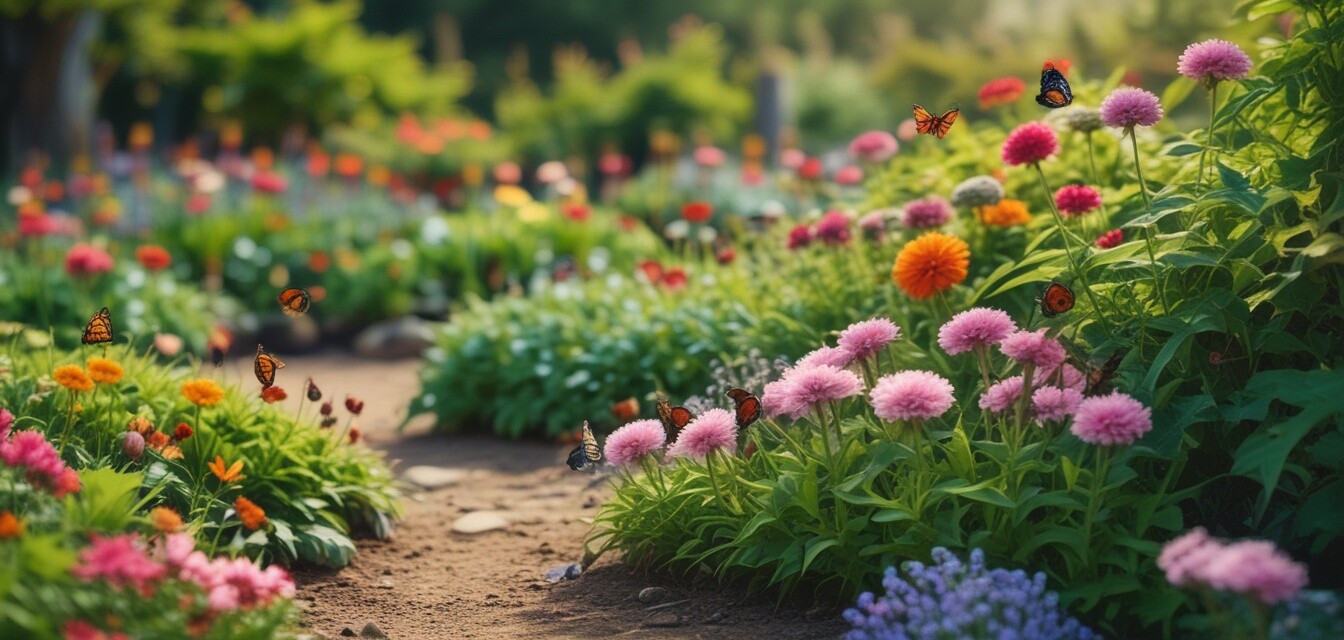
The Impact of Biodiversity on Gardening Practices
Key Takeaways
- Biodiversity enhances soil health and ecosystem stability.
- Diverse plant selections attract beneficial insects and wildlife.
- Implementing sustainable practices can increase biodiversity in your garden.
- Creating a habitat for local wildlife supports the ecological balance.
Gardening is not only a way to beautify your outdoor space but also a vital part of maintaining the planet's ecological health. The concept of biodiversity encompasses the variety of life forms within a given ecosystem, and it plays a critical role in gardening practices. This article explores the importance of biodiversity in gardening and methods to promote it in your garden.
Understanding biodiversity in gardening
Biodiversity refers to the variety of species, including plants, animals, fungi, and microorganisms that interact within an ecosystem. Here are a few reasons why biodiversity is crucial in gardening:
- Resilience: Diverse ecosystems are more resilient to pests and diseases.
- Soil Health: A variety of plants can enhance soil structure and nutrient availability.
- Pest Control: Biodiversity attracts beneficial insects that control pest populations naturally.
Benefits of promoting biodiversity
Incorporating biodiversity into your gardening practices offers numerous benefits, including:
| Benefit | Description |
|---|---|
| Increased Pollination | Diverse plants can attract a variety of pollinators, leading to better fruit and seed production. |
| Enhanced Aesthetic Appeal | A garden with a variety of species is visually interesting and vibrant. |
| Climate Resilience | Diverse ecosystems are better equipped to handle climate fluctuations. |
Ways to promote biodiversity in your garden
Here are some effective methods to enhance biodiversity in your gardening practices:
- Plant Selection: Choose a mix of native and non-native plants to create diverse habitats.
- Companion Planting: Use companion planting strategies to promote healthy plant interactions.
- Water Features: Adding ponds or water features attracts wildlife and beneficial insects.
- Reduce Chemical Use: Minimize the use of fertilizers and pesticides to create a safer environment for all organisms.
Creating a habitat for wildlife
Incorporating elements that support wildlife can significantly enhance biodiversity:
- Nesting Boxes: Install birdhouses or insect hotels to encourage habitation.
- Mulching: Use organic mulch to provide habitat and soil nutrients.
- Composting: Composting not only reduces waste but provides a rich nutrient source for your garden.
Current trends in biodiversity and gardening
Gardening trends are increasingly focusing on sustainability and the importance of biodiversity. Recent movements include:
- Permaculture: A design system that emphasizes the interrelationship between plants, animals, and the environment.
- Urban Biodiversity: Initiatives aim to help urban dwellers create green spaces that support local ecosystems.
- Organic Gardening: A method that encourages natural pest control and soil health through diverse plantings.
Resources for further exploration
To dive deeper into the world of biodiversity in gardening, consider exploring our other articles:
- Essential gardening tools for biodiversity
- Eco-friendly fertilizers that support healthy ecosystems
- Creating a microhabitat with greenhouses
- Irrigation systems that promote healthy plant diversity
Beginner tips for enhancing biodiversity
- Start small: Introduce a few diverse plants and observe their effects.
- Learn about local flora and fauna to tailor your garden effectively.
- Join community gardening groups to share knowledge and resources.
- Document your garden's progress to see what works best.
Pros
- Improves overall garden health and productivity.
- Attracts beneficial insects and wildlife.
- Contributes to the ecological balance.
- Enhances aesthetic appeal and enjoyment of the garden.
Cons
- May require more initial planning and effort.
- Some plants may compete for resources.
- Invasive species can disrupt local ecosystems.
Conclusion
Promoting biodiversity in your garden is essential for creating a sustainable and thriving ecosystem. By understanding its benefits and implementing effective practices, you can enhance the beauty and health of your outdoor space. Remember, every small effort counts towards creating a harmonious environment that supports life in all its forms.